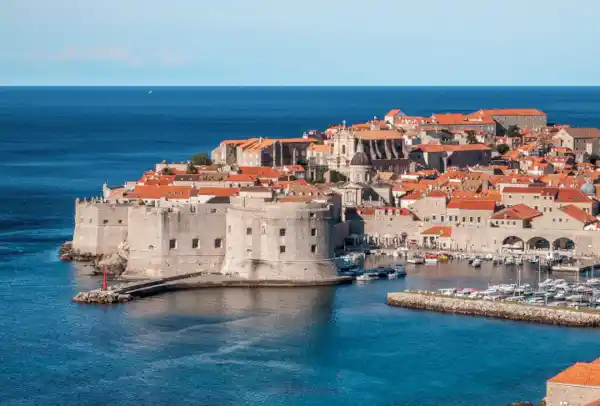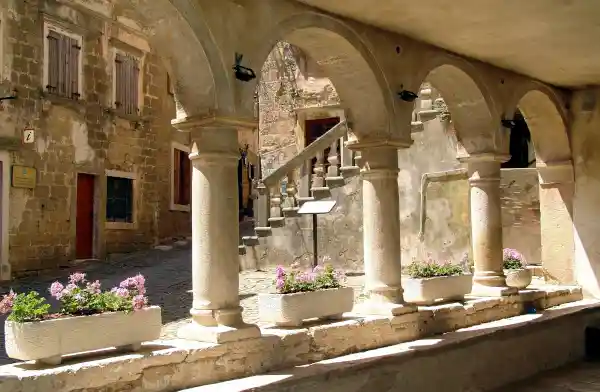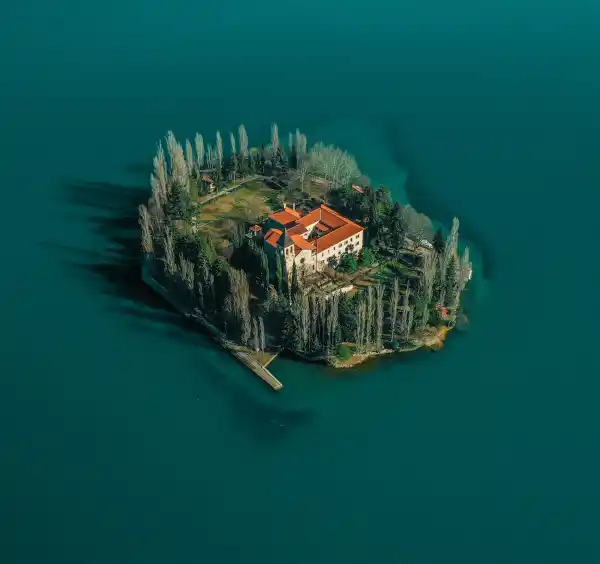Professional Croatian Translation Services
Halifax provides professional Croatian translation services.
Translation and editing, certified Croatian translation, Croatian interpreter, simultaneous or consecutive – We provide all language services. We translate into Croatian and from Croatian to all languages.
Croatian is the newest addition to the long list of languages spoken in the European Union. Read below what our translator has written about it.
Comprehensive Croatian language services
We offer professional Croatian translation services including:
- Croatian document translation to and from all languages
- Certified professional Croatian translation
- Revision, editing or proofreading of Croatian documents
- Croatian document conversion
- Croatian interpreting
- Video translation & transcription from and to Croatian
- Desktop publishing (DTP)
Our professional Croatian translation services are the most cost-effective you will find (read about translation rates here).

The Croatian language – our translator’s viewpoint
We asked one of our professional Croatian translation specialists to tell us something about her language. She studied it at university and has worked with it professionally for 18 years. Here is what she told us.
What special challenges do you face when you translate or interpret Croatian?
Professional Croatian translation is my job. It’s difficult to say what difficulties are the most common in my work, but perhaps I could mention this: Croatian has many grammatical rules. To complicate matters, the authors of different grammar books have not been able to agree on them for some time, everyone suggesting their own variant.
Sometimes you have to be careful because a mistake in just one letter can totally change the context or what the word represents, although it may not look like it at first glance.
Here’s an example:
Sljedeći – the next, the one behind someone or something
Slijedeći – to follow
There are many small things in which people often make mistakes, most often they are errors in the consonants č/ć, , wrong use of ije/je, faulty declinations, disrespect for assibilation, palatalization, iotation, etc. These are linguistic issues that most people would not worry about, but as a professional I have to be careful with them.

Where and when did the Croatian language emerge, and how has it developed?
Croatian was first used in some form at the end of the eleventh century. Those oldest Croatian texts were written in a mixture of a Croatian variant of Church Slavonic and archaic Chakavian, in the Glagolitic alphabet. From the 13th century Croats developed the so-called Croatian Cyrillic (later commonly referred to as Bosnian), and from the 14th century the Latin alphabet was increasingly used.
A standardisation of Croatian began in the 17th century. In 1604 in Rome, Bartol Kašić published the first Croatian grammar, Institutionum Linguae Ilyricae. At about the same time, almost all universities began studying Croatian, and in north-western Croatia the Kajkavian standard language was developing, along with the Stokavian, Chakavian dialects.
The migration movements of the Slavic tribes led to the creation of three large groups of languages: West Slavic, East Slavic and South Slavic. Today’s Slavic languages have evolved from these, including Croatian, which belongs to the South Slavic group along with Montenegrin, Bosnian, Bulgarian, Kajkavian, Macedonian, , Slovenian, Serbian and Old Church Slavonic.
From the 15th to the 18th centuries, the dialects diverged under the influence of many foreign words. The development of print meant that literary works in Croatian became more accessible, which had a great impact on how it spread and developed. Since the 19th century Croatian has gradually been standardized, mostly on the basis of Stokavian, with an emphasis on original terms rather than borrowed words.
Today about 5.5 million people speak Croatian, about 4 million of them in Croatia. The second country by number of speakers of Croatian is Bosnia and Herzegovina, with about 450,000 speakers. Others use the Croatian language in the USA, Austria, Serbia, Hungary, Italy, Montenegro, Slovakia, and to a lesser extent in some other countries. Croatian is the official language of the Republic of Croatia and one of the three official languages of Bosnia and Herzegovina. Since Croatia’s accession to the European Union on 1 July 2013, it has become one of the 24 official languages of the European Union.

Can you tell us anything else about Croatian?
The oldest preserved records in Croatian are written in Glagolitic. Since the 12th century, Croats have been the only Slavic people to actively use the Glagolitic alphabet.
The term “Croatian language” was first mentioned in a legal Istrian Divorce document in the 13th Century
Judita is the first Croatian-language artistic epic written by Marko Marulić who is therefore considered the father of Croatian literature
The first Croatian grammar was written by Bartol Kašić, in Latin.
Ljudevit Gaj is responsible for introducing a unique language and graphic standard.
Many expert and scientific names that are still regularly used today are due to Bogoslav Šulek. Some of the words he introduced are kisik (oxygen), vodik (hydrogen), plinomjer (gas meter), zdravstvo (health), školstvo (education), gradilište (building site), etc.
Croatia
Croatia is a surprisingly diverse land for a small country. The fertile plains of Slavonia seem a world away from the Mediterranean coast. The whole coastline echoes the Venetian state that for centuries ruled it, creating pearls like Dubrovnik and Split. The Roman and later Italian influence is strong, with wonderful places to visit, also off the beaten track: try the interior of Istria, away from the crowds.

If you are unfamiliar with Croatia but would like to know more about it, try Lonely Planet:
